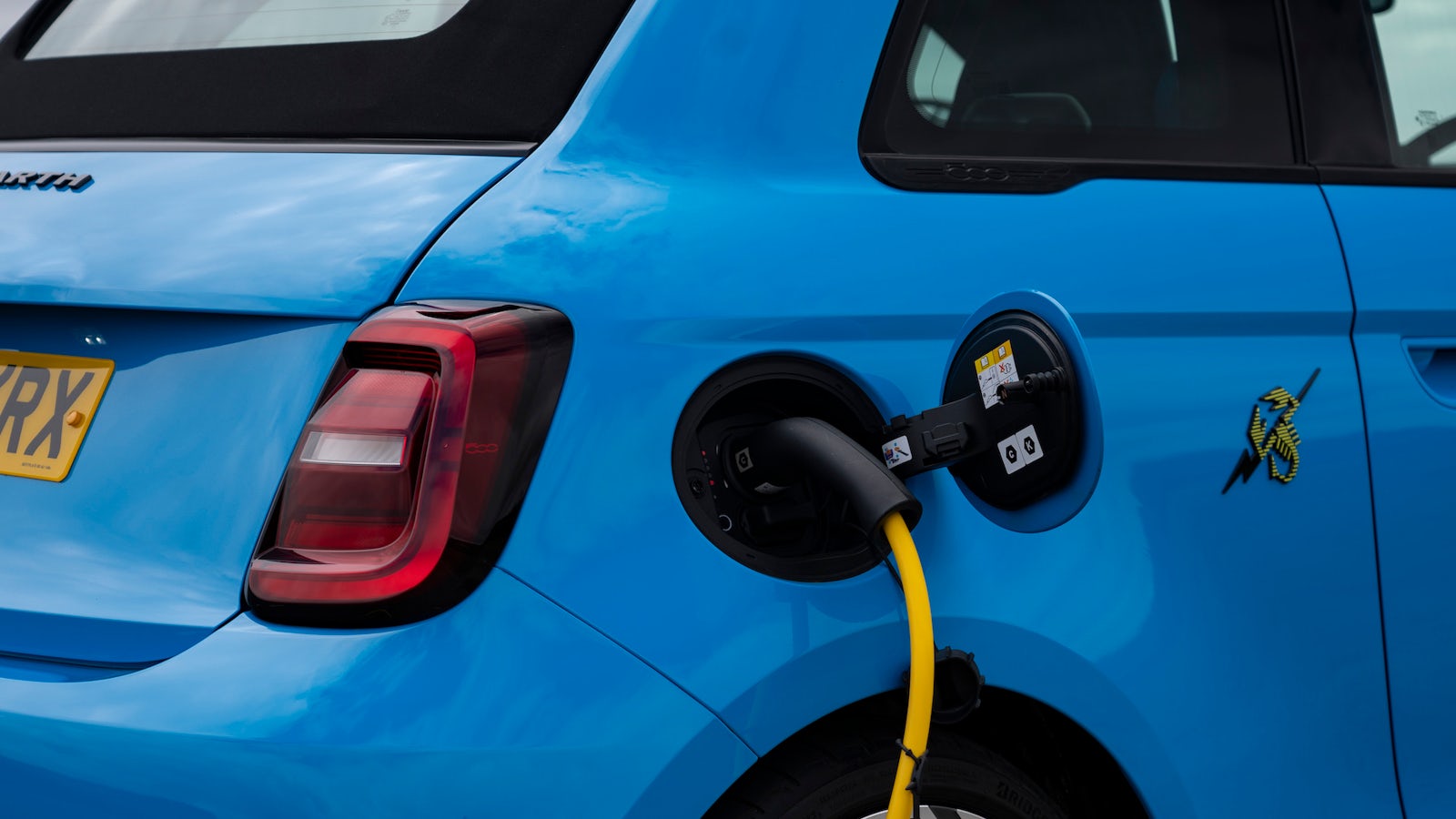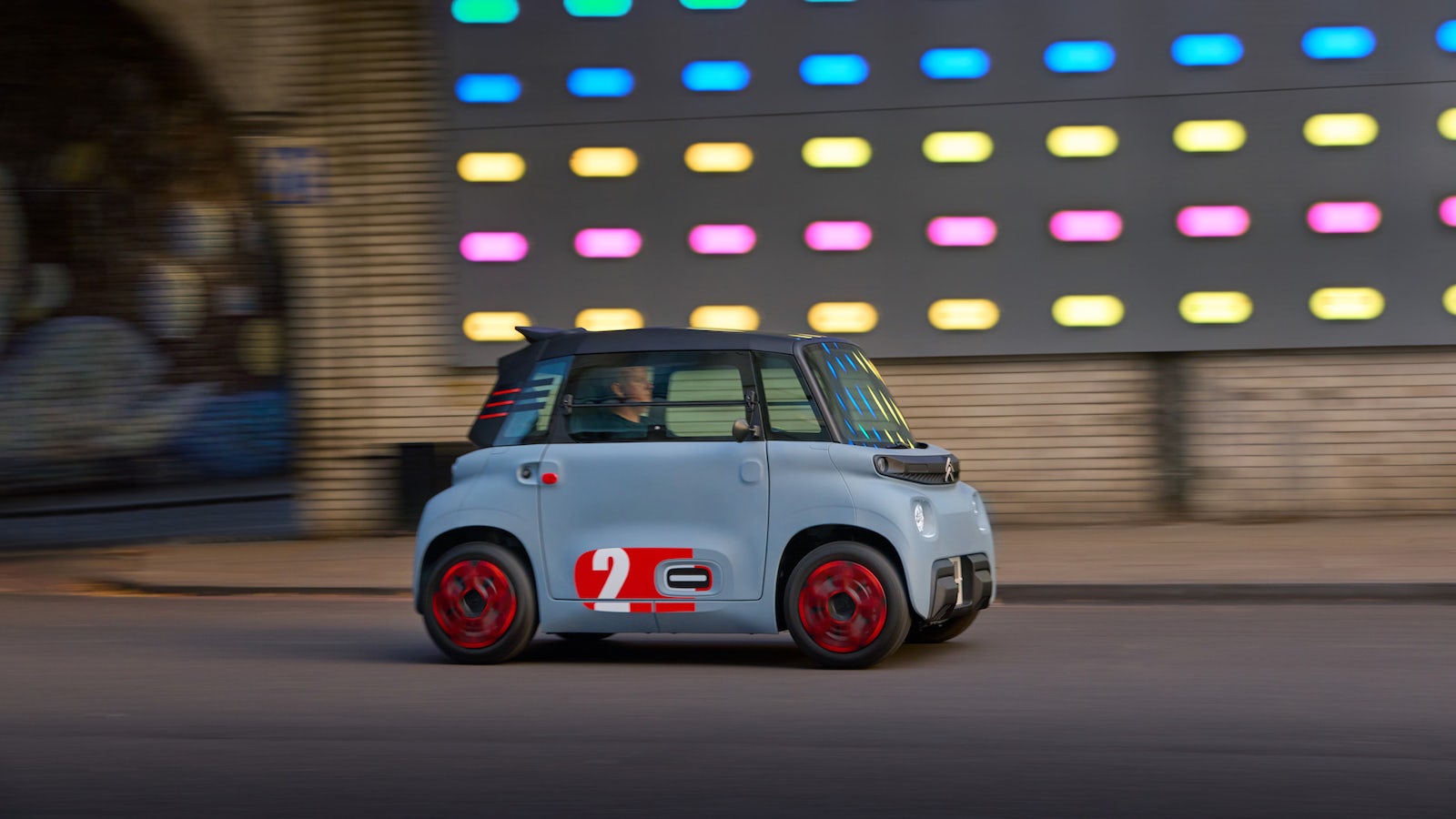Should I buy an electric car?
August 24, 2023 by carwow staff

Electric cars are here to stay. Sales of these zero-emission vehicles have been accelerating in recent years, as buyers become more eco-conscious. In fact, in 2035 the UK is banning the sale of new petrol and diesel cars that don’t have some form of electrification.
There are a number of things to consider before purchasing an electric vehicle:
- Battery range
- Where to charge
- Charging cost
- Charging time
- Upfront cost
- Company car benefits

Battery range
Gone are the days when you could pop to the shops and your electric car would immediately need a charge. Now, you’d be hard pushed to find an EV that can travel less than 200 miles on a charge, which makes them suitable for the vast majority of drivers’ daily routines.
You need to take a look at the cars in your budget, see how far they can go between charges, and then at your typical journeys. This will help you decide whether you can afford a car with a range that suits your needs.
It gets complicated if, for example, you rarely travel more than 15 miles per day, but regularly visit family over 200 miles away. You will have to decide if you want to deal with public charging infrastructure on those trips. It’s not as sparse or unreliable as it used to be, but it’s far from good enough.
For people who spend a lot of time on the road and rack up hundreds of miles a week, petrol and diesel cars might still be the better option. You will probably refuel once a week in this case, whereas even if you can charge at home overnight, you’ll probably have to call on public charge points a few times a week in an EV.
Where to charge
For most people looking at electric cars, where they charge will be a more relevant concern than how much range the car has. Electric cars are generally best for people who can top up the car’s battery at home or a place they regularly visit, such as the office. This is the most affordable and hassle-free way of doing things.
If you can charge every night, it probably won’t matter if you choose a car with 200 or 300 miles of range. However, if you’re relying on public chargers, the car with a lower range will require you to go out of your way to charge more often.

Owning an electric car without access to charging is a real commitment. Even with fast charging, it will likely grow tiresome having to take regular trips to your local charge point. Not to mention it can get very expensive doing things this way.
Charging cost
Speaking of which, electric cars are generally cheaper to run than petrol or diesel cars – but this does require you to do most of your charging at home.
Even with energy costs going up, most people will find that electric cars cost less to run than combustion cars if they charge at home. You can also get EV-specific tariffs, and take steps to reduce costs such as charging overnight.
It’s a very different story if you use public chargers. Some are quite cheap, but these tend to be slow chargers that take ages to top the car up – hours in some cases. If you want to use the fast ones, which can top you up in under half an hour, they cost quite a bit. If you’re relying on these, the bills will soon stack up and you might find you were better off sticking with a petrol or diesel model.

Charging time
When you go to a petrol station, all pumps fill the car at around the same speed. However, it’s a different story for electric car chargers. There are various terms and types of charger, such as slow, fast, rapid etc, and each has their own pros and cons.
Slow chargers are ones you typically have at home. If you have a dedicated charger, it will probably charge at about 7kW, with a three-pin plug around half that. This can take hours (maybe even 24 hours if you’re just using a house plug!) but they help prolong the life of the battery. They’re perfect for charging overnight.

However, public chargers tend to charge much more quickly than that. Fast chargers are typically anything from around 50kW up to 350kW. These days, even 50kW can feel pretty slow; if you’re looking for a quick top-up on a journey, you want to aim for anything above 100kW.
How long these take to charge largely depends on your battery capacity and how much of that needs to be filled. But you also need to consider that each car has a maximum charge rate – if your car can only take up to 150kW, you can still use a 350kW charger, but it will max out at 150kW. Charge speeds also slow down around 80% of battery capacity, too, to protect the battery’s health long-term.
As a guide, if you have a car capable of taking the full 350kW, it can go from 0-80% in around 10-15 minutes. This same charge could take 30-40 minutes using a 150kW charger.
Upfront cost
There’s no getting away from it: electric cars are more expensive than petrol and diesel cars. That’s partly because much of the technology being used is new, but also simply because batteries cost a lot to develop and make. As a general rule, the bigger the battery, the more expensive the car.
That’s off-putting to a lot of people, because electric cars immediately seem totally out of reach – but there’s more to the equation. If you’re financing the purchase, you should look at the monthly cost and add it to the expected running costs, then compare this with an equivalent combustion-engined car. You might find you’re better off overall, as EVs tend to be cheaper to run, as we’ve outlined above.
Company car benefits
This could fall under a more general point about running costs, but it’s worth making a separate note. The Government is heavily incentivising company car buyers to pick up electric cars by offering a ridiculously low benefit-in-kind tax rate. It’s slowly increasing, but it still represents a massive saving over a petrol or diesel car.
If you have a company car because you do a lot of motorway miles, you might not want to make the switch just yet, because you’ll spend your life (and life savings) at public fast chargers. But if you don’t do a huge number of miles it can be a great way to get extra money in your pocket at the end of the month.

Even private buyers benefit from tax incentives – until 2025, EV buyers face no road tax charge (or a small fee in years two to six if the car costs more than £40,000).
So, should I buy an electric car now or wait?
That depends entirely on your circumstances. The case for EVs grows stronger every day, but they’re definitely not for everyone. Here, we’ll outline some scenarios where we think you should and shouldn’t buy one.
You should get an electric car if you can charge at home
With most electric cars now capable of 200-300 miles between charges, and in some cases much more, being able to leave the house with a full battery every day means you would have to have a pretty mad commute before having to ever worry about using expensive public chargers.

You should get an electric car if you only travel short distances
If you’re doing very short distances, say five miles here and 10 miles there, then an electric car might work for you even if you can’t charge at home. Perhaps you work from home so only ever drive when you pop to the gym or to do the weekly shop. You might find a way to stick to more affordable public charging that works around your routine, and since you’ll only be charging once or twice per month, the costs won’t rack up so alarmingly.
You should not get an electric car if you spend a lot of time on the motorway
Electric cars are at their least efficient when cruising along the motorway, because they don’t benefit from regenerative braking as often. As such, you’ll probably find the maximum range you can achieve is lower than someone who sticks to the city. And if you’re doing high enough mileage in the process, you will also spend a lot of time at expensive public chargers.
If you’ve read the above and think a zero-emission car will work for you, start the process of buying an electric car today. And if you want to sell your car online, carwow can help with that, too.















